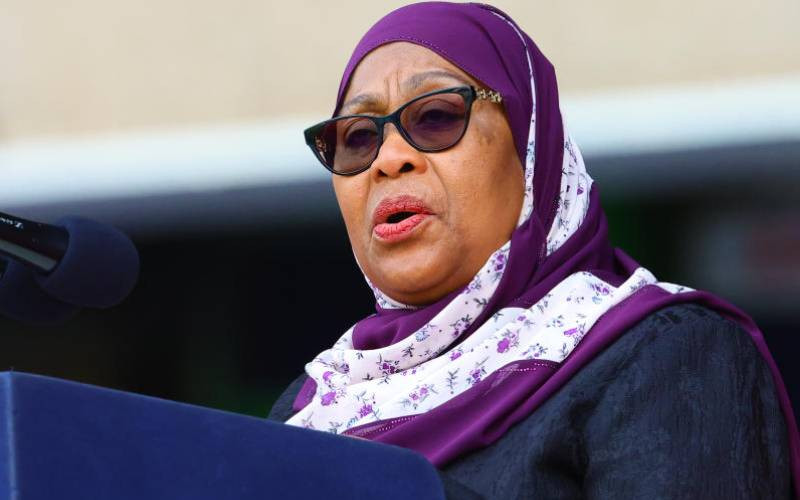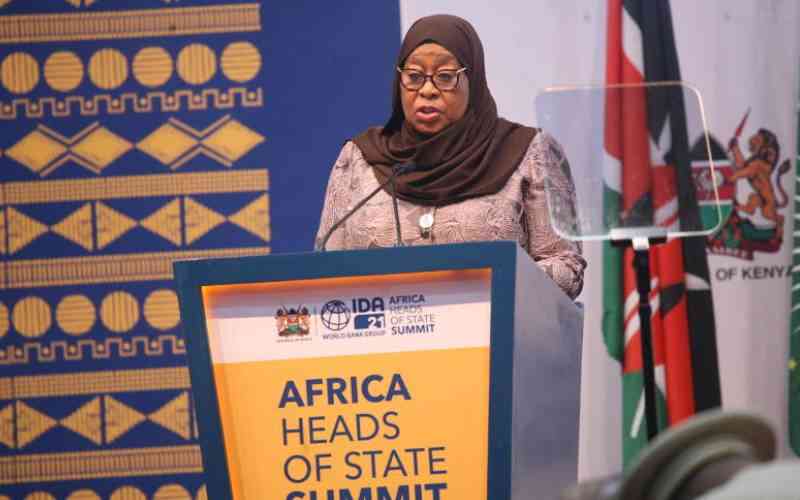
In March 2021, Samia Suluhu Hassan made history by becoming Tanzania's first female president and the first to be born in Zanzibar. Her ascent to the presidency marked a significant moment in East African politics, as she took on a role that had traditionally been the preserve of men.
Born on 27 January 1960 in Makunduchi, Zanzibar, Samia Suluhu was raised in a family that valued education. Her father was a schoolteacher and her mother was a homemaker; together, they instilled in her a strong work ethic. After completing her secondary education in 1977, she began her career as a clerk in Zanzibar's Ministry of Planning and Development.
She later pursued higher education, earning an advanced diploma in public administration from the Institute of Development Management (now Mzumbe University) in 1986, a postgraduate diploma in economics from the University of Manchester in 1994 and a Master's degree in Community Economic Development from the Open University of Tanzania and Southern New Hampshire University in 2015.
Political career
Samia Suluhu's political journey began in 2000 when she was elected as a special seat member of the Zanzibar House of Representatives. She was appointed a minister by President Amani Karume, focusing on youth, women, and tourism.
In 2010, she was elected to Tanzania's National Assembly, representing the Makunduchi constituency, and served as Minister of State for Union Affairs under President Jakaya Kikwete.
In 2015, she was elected as vice president alongside President John Magufuli, becoming the first woman to hold that position. Following Magufuli's passing in March 2021, she was sworn in as president, completing his term.

Presidency
Upon taking office, President Suluhu Hassan implemented measures to curb the spread of COVID-19, including promoting vaccination and public health protocols. She also lifted bans on political rallies and media, fostering a more inclusive political environment.
Economically, she has driven infrastructure projects, such as a $3.5 billion oil pipeline, and implemented a 35.1% minimum wage increase for public servants, effective July 2025.
Her administration has focused on gender equality, removing barriers for pregnant students and has been recognized for its efforts in economic development and political reform.
Recently, however, President Samia Suluhu Hassan's administration in Tanzania is facing mounting criticism over actions perceived as suppressing political dissent and restricting digital freedoms, particularly in the lead-up to the October 2025 general elections.
In May 2025, Tanzanian authorities detained and deported several prominent Kenyan figures, including former Justice Minister Martha Karua, former Chief Justice Willy Mutunga, and activists Boniface Mwangi, Hanifa Adan, and Hussein Khalid.
These individuals had traveled to Tanzania to attend the treason trial of opposition leader Tundu Lissu. Lissu, a key figure in the CHADEMA party and a former presidential candidate, was arrested in April 2025 on charges of inciting public dissent and treason after calling for electoral reforms ahead of the upcoming elections.
His arrest and the subsequent treatment of foreign activists have drawn widespread criticism, with many accusing President Suluhu's government of stifling political opposition and violating human rights.
Adding to the controversy, access to the social media platform X (formerly known as Twitter) was blocked across Tanzania in May 2025. This move followed a series of cyberattacks on government agencies and was ostensibly aimed at preventing the spread of information related to alleged plans by opposition parties to raid police stations and free political prisoners.
The restriction has been condemned by digital rights organizations and is seen as part of a broader pattern of digital repression in the country.
These actions have sparked a wave of reactions from netizens, with many drawing parallels between President Hassan's tactics and those of past authoritarian leaders. The moniker "Idi Amin Mama," referencing Ugandan dictator Idi Amin, has been used by critics to highlight concerns over the perceived erosion of democratic principles and the suppression of dissent in Tanzania.
The international community continues to monitor the situation closely, with human rights organizations and foreign governments urging the Tanzanian administration to uphold democratic norms and respect for civil liberties.
Personal life
Samia Suluhu is married to Hafidh Ameir, a retired agricultural officer, and together they have four children. Their daughter, Wanu Hafidh Ameir, is a member of the Zanzibar House of Representatives. She is a practicing Muslim and is known for inspiring women to break traditional constraints.
President Samia Suluhu Hassan's leadership continues to shape Tanzania's political and economic landscape, earning her recognition and criticism both domestically and internationally.
 The Standard Group Plc is a multi-media organization with investments in media
platforms spanning newspaper print
operations, television, radio broadcasting, digital and online services. The
Standard Group is recognized as a
leading multi-media house in Kenya with a key influence in matters of national
and international interest.
The Standard Group Plc is a multi-media organization with investments in media
platforms spanning newspaper print
operations, television, radio broadcasting, digital and online services. The
Standard Group is recognized as a
leading multi-media house in Kenya with a key influence in matters of national
and international interest.

